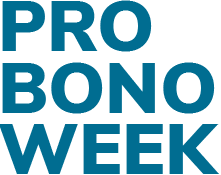The right of citizens to challenge environmental decisions through legal redress routes, and being able to access appropriate legal information, support and services on environmental law issues is fundamental to achieving any notion of environmental justice.
Evidence of the disproportionate impact of environmental degradation and climate change on vulnerable and disadvantaged groups, including those living in poverty, highlights the link with social justice; the law, domestically and globally. The law can be a tool to effect and inform solutions but is rendered useless without effective access to environmental justice. This principle is enshrined in international obligations such as Aarhus Convention which applies to the UK, although there is no significant enforcement mechanism.
Coinciding with UN Climate Change Conference (CoP 26th, Glasgow) the 20th year of pro bono week is looking at the ‘big picture’ on the past and future challenges for pro bono. This session hosted by LawWorks, the Environmental Law Foundation and A4ID will discuss the contribution that pro bono can make, and its limitations, at community level to environmental justice, (e.g., flooding, planning, nuisance issues, environmental hazards) but within a global context that understands environmental law as deeply connected with development, human and social issues.
Panel includes:
- Chair: Robert McCracken QC, FTB Chambers
- Wessen Jazrawi, Hausfeld
- Emma Montlake, Environmental Law Foundation
- Matt Hunt, PGMBM
- Richard Owen, Hilary Rodham Clinton School of Law, Swansea
- Joe Tan & Thomas Istasse, A4ID
Register at the Eventbrite link below.
